Keeping a British Shorthair cat is not too much trouble for the owner. Only the cat's eyes and ears need extra care.
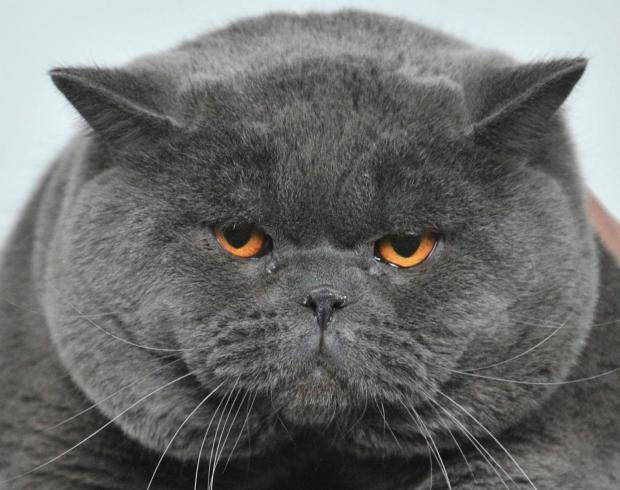
- 😻Maybe tea? Nutrition of British cats.
- How to feed a cat correctly?
- Natural food
- Diet depending on age
- 1-2 month old
- 3 months.
- 6 months and over
- Dry industrial food
- Premium class
- Holistic
- How to create a balanced diet?
- Forbidden foods
- Advice from veterinarians
- Why is "natural food" more useful?
- Raising British kittens
- Antiparasitic treatment and vaccination schedule
- Forbidden foods
- Treats for British Cats
😻Maybe tea? Nutrition of British cats.
So majestic, true blue-blooded aristocrats, yes, that's all about them, the British, of course, the ones with whiskers and tails.
The breed, bred in the 19th century, is still very popular among breeders, both beginners and experienced professionals.
And really, how can you pass by these wonderful creatures, who look at people with eyes full of calm, serenity and complacency.
Unfortunately, behind the wonderful appearance and cute face there are less pleasant things. This applies to the health of the British breed.
Cats of the British breed are prone to diabetes and weight problems, to obesity. This often happens because inexperienced or irresponsible (not to be confused!) owners do not monitor the quality of the food the cat eats.
Therefore, it is important to put together a competent, nutritious and tasty diet that will fully meet the pet's needs and will not cause health problems.
When approaching the issue of nutrition of British cats (as, however, and others, too), there can be many questions and disputes, so it is worth carefully studying everything before you start acquiring such an animal.
Since the wild relatives of domestic cats eat exclusively animal food, then, accordingly, and at home it is better to create a diet that will be as close to the wild as possible – meat.
It will be most reliable to choose natural food of their own making, but in no case food from the table.
Purchase chicken giblets, beef heart, lungs, pork or beef liver, kidneys. And take a little liver – only 5% of the total amount of meat. Chop everything into small pieces or mince in a kitchen machine. Divide into portions and put in the freezer.
You should also add vitamin complexes with calcium to this diet for healthy bones, teeth, coat and strengthen immunity.
How to feed a cat correctly?
In order for a pet not to lose its predator instinct, it needs a special diet. Meat proteins naturally enter the cat's body in a raw form, and carbohydrates and plant fibers in a semi-digested form. This must be taken into account when forming a pet's diet.
- A cat's diet should include components of plant and animal origin. It should necessarily include vegetables, cereals and meat.
- Poultry and beef are of particular benefit to the cat's body. It is better to exclude pork from the diet.
- Of the cereals, oats, buckwheat, rice, and barley are the best for the cat. Useful vegetable crops include carrots, beets, cucumbers, zucchini and white cabbage.
- Dairy products are suitable for the diet of cats: ryazhenka, cottage cheese, kefir.
Natural food
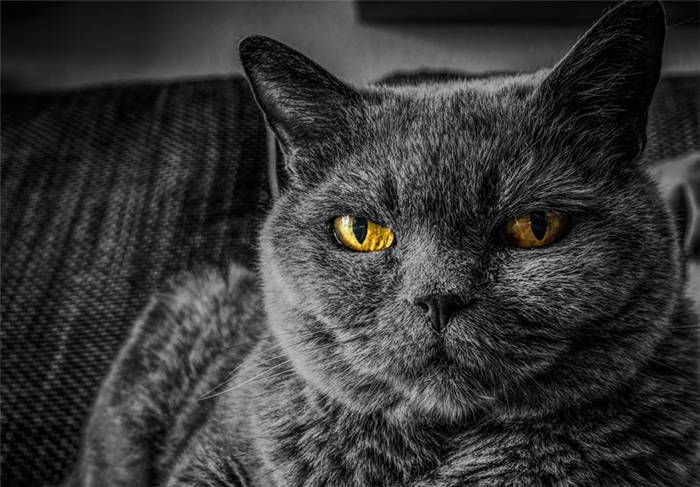
What to feed a British cat at home? If we are talking about natural food, it is best to use meat and vegetables in raw or boiled form. You can also give porridges. Usually this feeding scheme is chosen by owners who have enough time to prepare food for their pet. The set of products that must be included in the diet includes meat, lean fish, dairy products, vegetable crops and porridges.
Meat of rabbit, poultry and beef must be given to the cat in its fresh form. It can be preliminarily subjected to heat treatment. It is enough to put the meat in the freezer for a few hours. Then the defrosted meat should be scalded with boiling water. This will eliminate the possibility of infection by various infections and parasites. The structure of such food will be close to canned food, but it will retain all the useful qualities. How to feed a British cat properly? When choosing natural food, try not to use raw eggs, pork, flour products, coffee, chocolate, potatoes, tomatoes, nuts and citrus fruits. Lean oceanic fish (pollock, hake, saffron cod) can be used as a meat substitute. For the cat, it must be boiled a little and cleaned of bones. As for dairy products, they can be given together with special bran. Such a product is rich in vitamins and fiber. It has a beneficial effect on the health of the cat.
Diet depending on age
The digestive system in British kittens is forming gradually, so some foods can cause colic, bloating or indigestion.
1-2 month old
1-2-month-old kittens are fed liquid milk porridges, pureed soups with chicken broth, cottage cheese, mashed with nonfat sour cream or milk.
3 months.
From this period, babies, in addition to porridges and soups, give meat. It is refrozen and chopped with a sharp knife or passed through a meat grinder.
6 months and over
Kittens of this age can already be given all the above foods, paying attention to the temperature and freshness.
Dry industrial food
When choosing this type of food, you should choose food among the premium or super-premium classes. Breeders of British cats advise foods from well-known companies – Hills, Royal Canin, Nutra Gold, Purina Pro Plan. Among the recommended foods are:
- NATURE'S PROTECTION KITTEN;
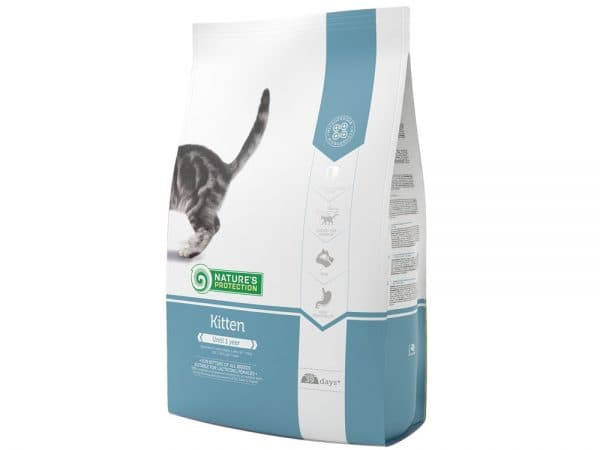
- NATURE'S PROTECTION SUPERIOR CARE LARGE CAT KITTEN;
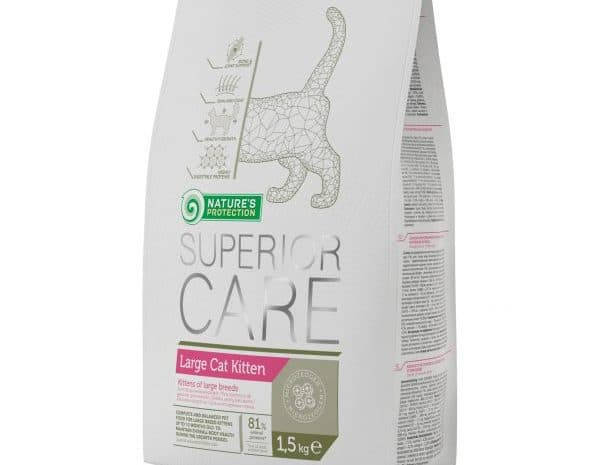
- ACANA WILD PRAIRIE;
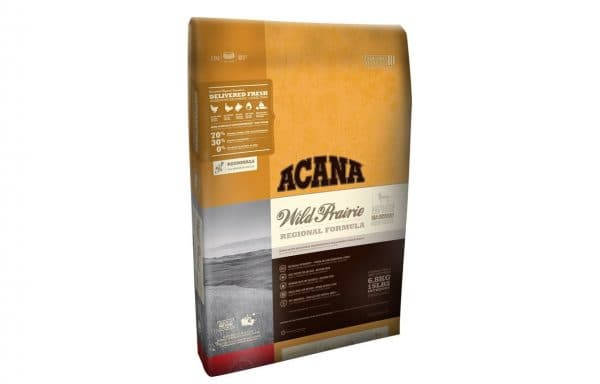
- ACANA GRASSLANDS CAT & KITTEN;
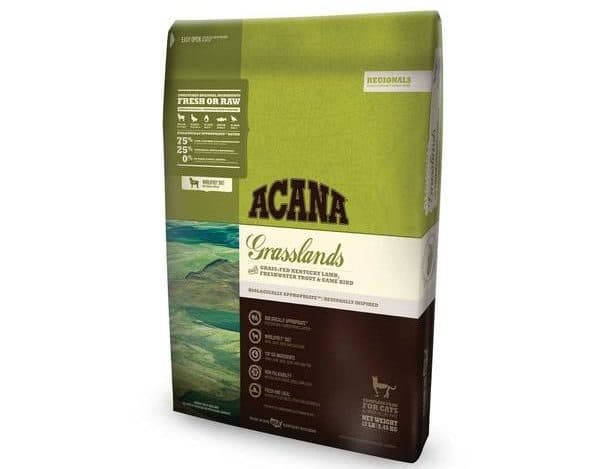
- 1ST CHOICE KITTEN.
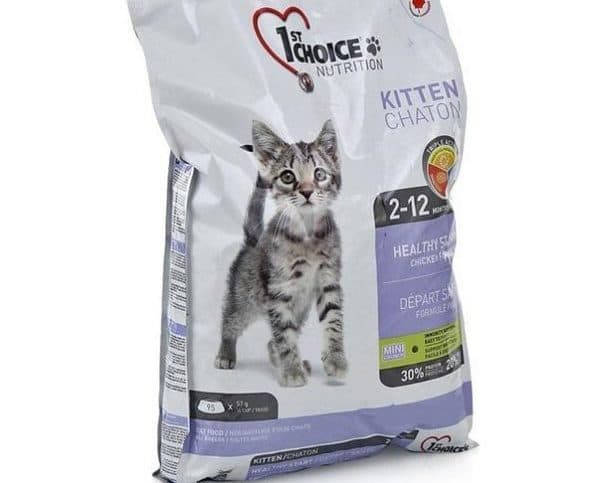
There should be a label "for kittens" on the package. Some companies make food specially designed for British babies, such as British Shorthair KITTEN by Royal Kanin. It is not possible to feed baby food to adults, as they have different needs for useful minerals, and the size of pellets is not designed for small mouths.
Premium class
These products belong to the medium price segment among cat foods. The meat content will be small, but the composition includes cereals, vitamins and vegetables. The digestibility of this product by animals is at 80%. A notable feature of the premium food is the ability to pick up food for the pet with specific needs, for example, manufacturers offer special products for neutered or spayed Brits.
Such food will stand out from other cat food products for its high price, but the quality of the ingredients used will be on the same level. As a rule, bona fide manufacturers use natural dehydrated meat as the main ingredient. In addition, a variety of cereals are present in the feeds, and there are products of the grain-free category. Berries, fruits and vegetables are actively used. Among the additives to pet food, balanced and easily digestible additives should be included. There is a small risk that such expensive food will not be suitable for Britons and British pets, but as practice shows, it is the food of industrial production will be as close as possible to the chemical composition of the natural diet of the pets.
Holistic
This is the food of the latest generation, which is an improved version of the extra food for the feline family. The meat used for this product comes from animals raised on organic farms. Similar features of growing grains and vegetables are provided for this category of ingredients. Healistics must be free of any flavor enhancers and other chemicals, so some British people may refuse it when they are introduced to a new food.
It is also worth noting that not every pet store sells this category of products.
How to create a balanced diet?
Each owner decides for himself whether his pet will eat only dry or wet food, and in what proportion the food will be combined. Standard options: 50/50, 70/30, 60/40%. In any case, the pet should always have access to clean water. And the food should be poured into the bowl only at feeding time – the rest of the time it should be clean. To create a balanced diet, you can follow the example of experienced breeders who recommend:
- alternate feeding with dry and wet food (in the morning it is better to introduce soft pieces in sauce or canned food into the diet, then the feeding continues with dry food);
- Meat chopped into small pieces should be offered regularly;
- Do not skimp on the pedigree or elite food, as this will make the animal's health worse.
Forbidden foods
What should not be given to British kittens? In fact, the list of products here is the same as in the case of adult animals, which also have an impressive list of prohibited foods:
- cheap food (dry, canned and preserved) – the cheaper the product, the more low-grade raw materials go into it;
- Raw, fresh meat;
- Pork – pork contains microorganisms that are dangerous for cats and is too fatty for cats;
- River fish (you can have sea fish, where there are no small bones);
- milk at the age of six months – it is not digested and causes stomach upset;
- Onions – dangerous for the health of the animal;
- sweets, pickles, smoked foods.
With a proper diet and exclusion of harmful products, there is no doubt that the pet will grow and develop properly. For the British, there are their own restrictions. For example, kittens with purple color are not recommended by by-products, which can affect the color of the coat.
Owners of blue coats, in addition, should not eat foods containing carrots and seaweed.
Advice from veterinarians
The main advice you may hear from veterinarians is not to overfeed your Brits. A caloric value of 300 kcal per day ensures physical activity, good health, and does not allow you to overfeed your pet. A clear balance of proteins, fats and carbohydrates as well as micronutrients is necessary to keep the cat healthy and growing. Remember, in addition to quality food, your pet should always have access to clean water. Use a separate bowl and change the water at least once a day. The best way is to change the water to filtered liquid. But it is not recommended to use boiled water, because it lacks important elements.
Don't overdo it with vitamins and food supplements. Dry food is already enriched with the necessary substances. With natural feeding, it is most often recommended to take vitamins in the spring or during illness. The most commonly prescribed drug is Kitzim. It is based on brewer's yeast and contains a full list of B vitamins, as well as some minerals: calcium, phosphorus, iron, manganese. Veterinarians put the fat British breed on a diet right away.
For these cases, manufacturers of dry food have developed special low-calorie products. In this case, the number of feedings is limited, strictly 2 times a day, no more than 70 g of food, and feeding from the common table is prohibited.
Why is "natural food" more useful?
This type of nutrition is an evolutionary principle. And, as we know, nature is much smarter than man. So the first indisputable benefit of natural food is that it suits the cat's body, which has been formed over thousands of years of evolution. And the advent of industrial cat food just a few hundred years ago has not changed anything.
We could have stopped there, since the concept of "species-specific nutrition" essentially includes a huge number of factors: from preserving the health of internal organs to increasing the happiness level of the animal tearing the flesh off a piece of meat. But since you are reading this article, you already want to feed your cat naturally. Therefore, let us focus on two important points.
The first point is that meat, unlike industrial fodder, does not undergo heat treatment and carcinogenic treatment by extrusion. This method is recognized as very harmful to health, so the extruded products should be abandoned as much as possible. And not only cats, but humans as well.
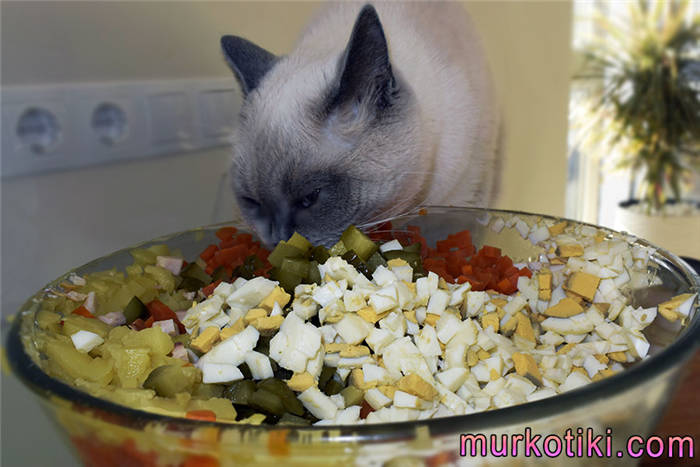
The second point – it is desirable for a cat to get up to 70% of its daily water intake not from drinking, but from food. Raw meat is about 50-60% water. Getting enough fluid in each day is extremely important for cats, which as a biological species are prone to kidney disease. Dry food, on the other hand, contains very little moisture.
Even if you feed your cat raw meat, water must be available at all times – fresh and purified. You can buy bottled, but not mineral. And note that cats on a natural diet drink little compared to cats on industrial food. This is normal, since a raw cat gets most of its water from meat.
Raising British kittens
Representatives of this breed are highly intelligent, so they are easy to train. However, it is important to keep in mind that the British are delicate and vulnerable animals. You must be persistent and patient. Do not raise your voice at them, and let alone beat them. Otherwise, you can permanently lose the trust of the pet.
Important! Care and education of British kittens – concepts are inseparable. The task of the owner is to set limits on behavior that should not be crossed. After all, the habits formed in childhood will remain in the adult pet.
In order to pacify a restless boy, it is enough to spray him with water from a spray gun or hit him with a newspaper on the floor. Praise your kitten for good behavior and success in learning, and sometimes give him something tasty.
British cats need not only care, but also love and affection. They become very attached to their owners and suffer if the owners do not pay attention to them. This is why it is so important to play with the kitten regularly and give him affection.
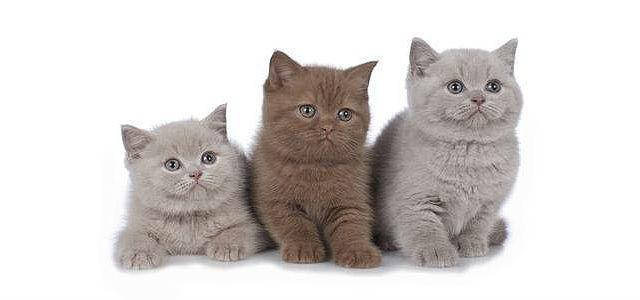
Antiparasitic treatment and vaccination schedule
To prevent infectious diseases, the pet is vaccinated. The first vaccination is performed at the age of 12 weeks, with each subsequent vaccination performed annually. Twice a year, it is recommended to treat cats against worms and skin parasites.
Information about vaccinations is recorded in the veterinary passport. Without it, the animal can not take part in exhibitions, travel and is not allowed for breeding.
Many people dream of a British kitten, but not everyone understands how big a responsibility. The animal needs care like a small child: it requires love, care and attention. Those who are not ready to spend their time and money on a pet should not have one.
Forbidden foods
Most foods that people eat are not suitable for cats. British cats should not be fed any salty, sweet, fried, greasy, smoked, or spicy foods. The cat's body is not adapted to digest such food, and the liver cannot cope with a lot of toxic substances.
Also, the diet of British cats should not include the following foods:
- river fish;
- Tubular bones;
- Sausage products;
- Semi-finished, canned and fast foods;
- Mayonnaise, ketchup and other sauces
- chocolate, cocoa;
- eggplants, potatoes, legumes;
- mushrooms;
- citrus fruits, grapes, raisins;
- rhubarb, sorrel, onions, garlic;
- foods and drinks that contain alcohol, caffeine and other stimulants.
You must not feed a British cat food from the human table, even if it is begging for a tidbit. Such treats will result in serious health problems.
Treats for British Cats
To encourage a British cat for good behavior or just to pamper it, owners use special treats.
- Preventive – prevents various diseases, cleanses the stomach of hair, prevents the formation of tartar;
- vitamins – enriched with useful substances that make up for vitamin and mineral deficiencies;
- nutritious – treats with high nutritional value;
- to encourage – give the cat a new taste experience, used as a praise.
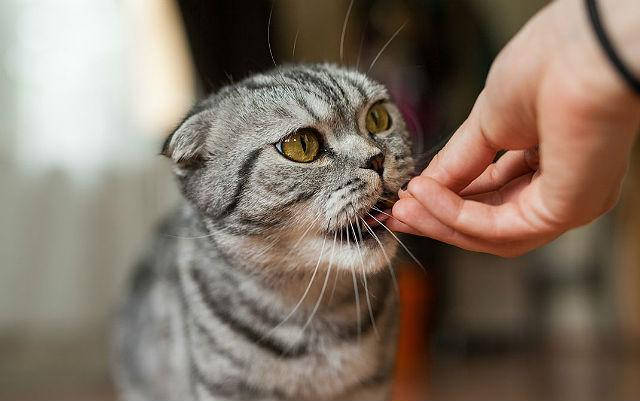
On the package, manufacturers are sure to indicate the age from which you can give a treat, the recommended portion and composition.
Important. The British cat must understand that the treat has to be earned. Otherwise, she will be constantly begging for "goodies".
The treat can be in the form of sausages, slices, crunchy pads, sticks, cream, etc. Manufacturers offer a wide range of flavors based on natural ingredients.
It is not so important whether the owner will feed a British cat natural food or industrial food. The main thing is that the food is of high quality, fresh and balanced. Then the pet will live a long and happy life.
💡 A side note. You can always ask a veterinary nutritionist for help in making up a balanced diet for your pet. You do not need to go anywhere for that. You can consult a veterinarian online at any time without leaving your home.






